From 2020-2026 our NSF-funded (Grant No. 2010634) design research project has explored how to support mentor teachers and teacher candidates in co-learning equity-oriented mathematics instruction in the clinical experience. In particular, our tools are designed to support teachers in collaboratively noticing and centering the assets of students who are often excluded or marginalized in K-12 mathematics classrooms. Our Asset-Focused Co-Noticing Tools (ACT I and ACT II) have been piloted in seven teacher education programs around the United States to support both traditional student teaching as well as other clinical experiences.
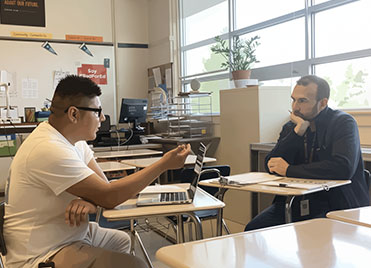
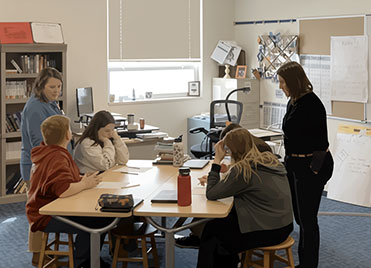
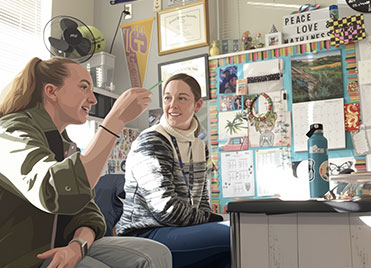
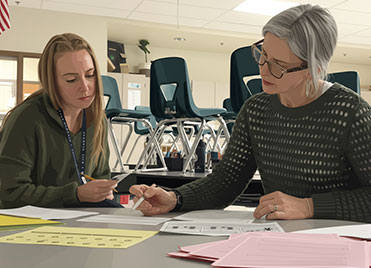
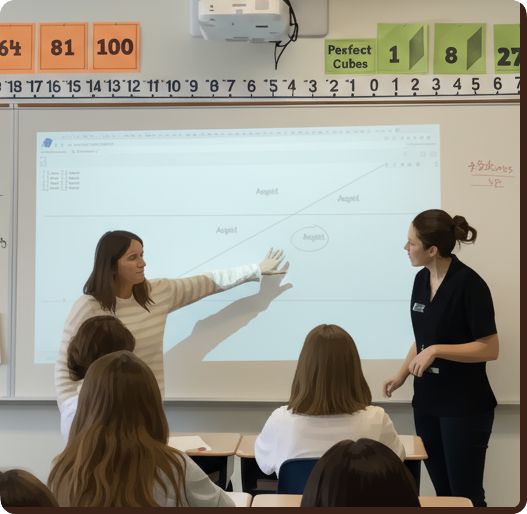
Our Asset-Focused Co-Noticing Tools (ACT I: Huddling & ACT II: Co-Conferring) offer structures to orient mentor teachers and teacher candidates toward one another and a shared equity focus before, during and after instruction. Each tool includes a protocol for: 1) Preparing to co-learn; 2) Working together during the lesson; and 3) Debriefing. Teachers can use the tools repeatedly across a semester/term or school year to deepen their co-learning about the work of noticing and centering students’ assets and develop routine ways of learning together.
Click on arrow
Our protocols prompt teachers to collaboratively plan, enact, and debrief lessons.
Our protocols prompt teachers to collaboratively plan, enact, and debrief lessons.
Please explore our site to learn about our protocols and think about how you might use them in your own work as a teacher candidate, mentor teacher, or teacher educator!

This material is based upon work supported by the National Science Foundation under Grant No. 2010634. Any opinions, findings, and conclusions or recommendations expressed in this material are those of the author(s) and do not necessarily reflect the views of the National Science Foundation.